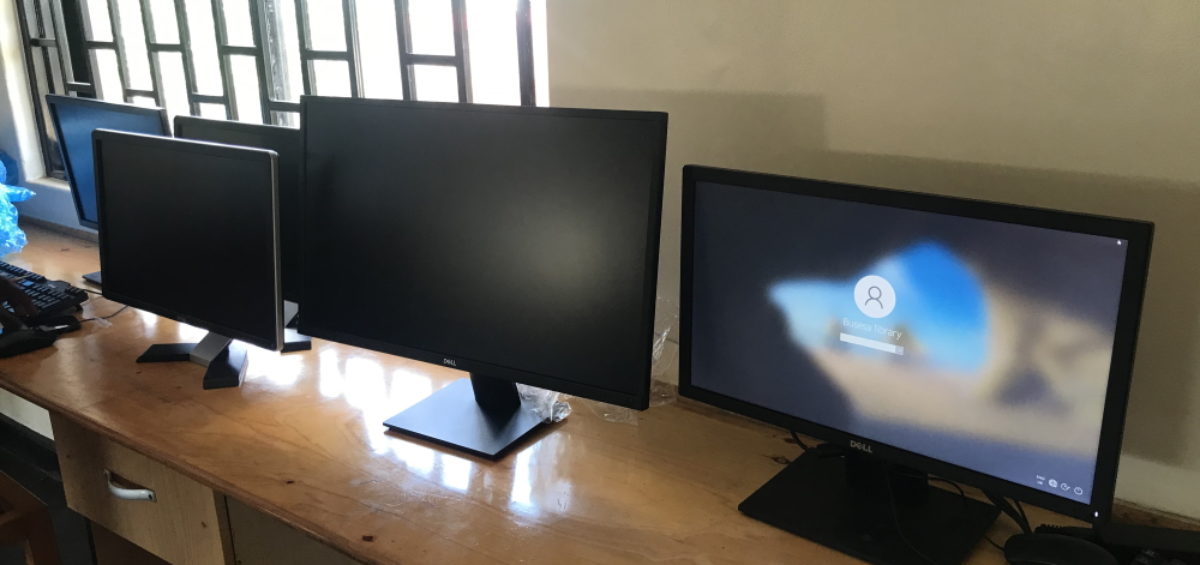With the world fast becoming a global village and becoming more and more digitally connected, embracing computer knowledge is the way to go. It may not matter much at what scale one knows about a computerized gadget, but it does help a great deal to one who doesn’t know a thing.
It is therefore great news to learn that the Kitakule Foundation recently received computers donated by the Rotary Club of Louisiana. The Rotary Club of Louisiana donated money that was used to purchase 7 computers. The number of computers now available at the library is 16.
According to Stephen Sooka, the Program Coordinator of the Kitakule Foundation, the library needs 24 more computers to bring the number to 40. This will help increase access in relation with the library user population. “Computers are connected to the internet and enable access to online resources and learning,” says Sooka.
He adds that, “Children have been given a chance to use their play time productively by engaging in learning (computers and books) which many children do not have access to in Uganda.”
Since the disruptions of the Coronavirus pandemic started, many things have changed in Uganda and globally. Here, at the Kitakule Foundation library in Busesa, learning online is one of the “new normal things” the students have had to embrace.
Gertrude Nalugo, the librarian, says this new normal started in September 2021. “We started with senior one, senior two, senior three and senior five. I teach them how to type and how to search for things online,” Nalugo explains.
She adds that so far about 50 students and 10 teachers have received computer training.
They have gone ahead to improve their ICT skills and are using them to do independent learning outside of the classroom environment. Many students are now encouraging others to come to the library and this has helped them widen their learning spectrum.
All pupils and students were sent home after the second wave of the pandemic. This brought about serious disruptions including deaths and job losses in different communities. The government advised that in order to catch up, the learners have to adjust and start online studies.
Thanks to the Kitakule Foundation for this free service, otherwise many of these students in a poverty ridden upcountry place with less or none of such facilities would have been able to learn online or later alone know how to use a computer.
For the first time, many students in this community have learnt how to use the computer. They have thus improved their reading, typing as well as online searches.
Sooka notes that, “The library is bridging the learning gap for rural children who cannot afford online studies.” He stresses that the library needs 40 computers to provide ICT training for students, teachers and the local community. “This will help foster learning and development,” Sooka notes.
Sooka says, “The Foundation is open to receiving volunteers willing to serve in the community in the areas of education, health, training, community sensitization, Information and Communication Technology etc. If you are interested in volunteering please check our contact details and talk to us.”



